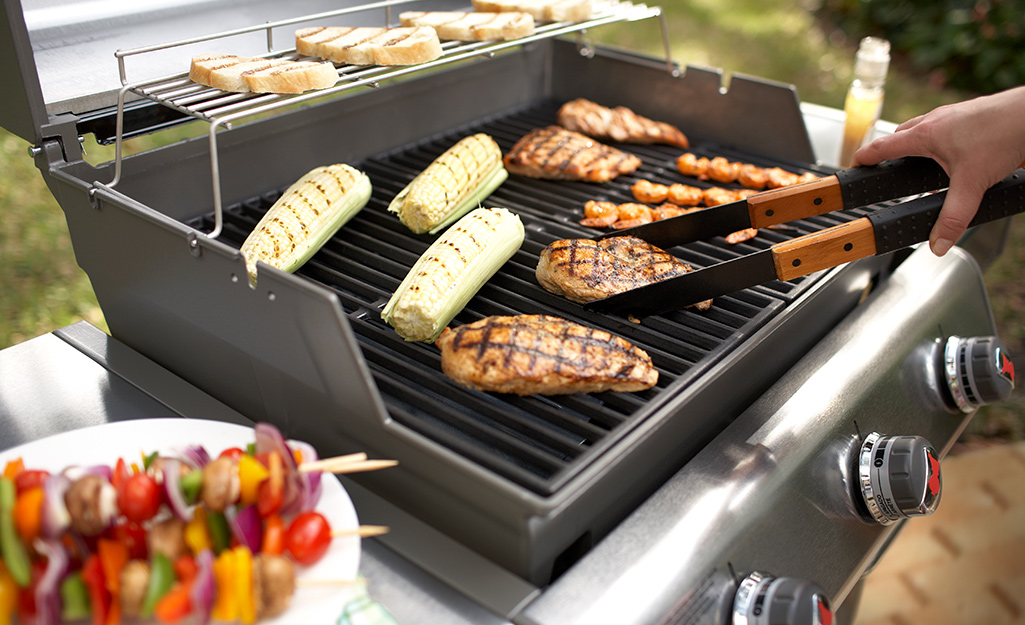Choosing the Right Grill Grates: Your Guide to Better BBQ
Written By James Morgan
For barbecue enthusiasts, the grill is more than just a cooking tool; its a gateway to flavor, camaraderie, and the joy of outdoor cooking. One of the most crucial components of a grill is its grates. Choosing the right grill grates is essential for achieving the perfect sear, flavor, and texture in your grilled foods. In this article, well delve into why selecting the appropriate grill grates matters and how it impacts your grilling experience.

Understanding the Importance of Grill Grates
The importance of grill grates cannot be overstated when it comes to grilling. They are the direct interface between your food and the heat source. Your choice of grates can affect everything from heat retention to grill marks and even the ease of cleaning. Whether you are a novice griller or a seasoned pitmaster, understanding the nuances of different grill grates can make a significant difference in your barbecue results.
Types of Grill Grates
There are several types of grill grates available, each with its own set of advantages and drawbacks. Here, we explore the most common materials and their unique characteristics:
- Cast Iron Grates: Known for their excellent heat retention and ability to create perfect grill marks, cast iron grates are a popular choice among grillers. They require regular maintenance to prevent rust, including oiling and seasoning, much like a cast iron skillet. For tips on how to season your grates, check out this seasoning guide.
- Stainless Steel Grates: Durable and resistant to rust, stainless steel grates are easy to clean and maintain. They may not retain as much heat as cast iron, but they offer a good balance between performance and convenience.
- Porcelain-Coated Grates: Available in both cast iron and stainless steel cores, porcelain-coated grates offer a non-stick surface that simplifies cleaning. However, they can be prone to chipping if not handled carefully.
- Aluminum Grates: Lightweight and resistant to rust, aluminum grates heat up quickly and are easy to maintain. While they may not provide the same heat retention as heavier materials, they are a good option for those who prioritize portability.
Factors to Consider When Choosing Grill Grates
When it comes to choosing the right grill grates, there are several factors to consider. Your personal preferences, cooking style, and budget will all play a role in determining the best option for your needs.
- Heat Retention and Distribution: If you often cook thick cuts of meat or enjoy creating distinct grill marks, youll want grates with excellent heat retention, such as cast iron. For more even heat distribution, stainless steel or aluminum may be better suited.
- Durability and Maintenance: Consider how much maintenance youre willing to invest in your grill grates. Cast iron requires regular seasoning, while stainless steel and aluminum are lower-maintenance options.
- Non-Stick Properties: If you prefer a non-stick surface, porcelain-coated grates might be the right choice. However, be mindful of avoiding metal utensils that can chip the coating.
- Budget: Your budget can also influence your choice. Stainless steel and aluminum grates are often more affordable, while cast iron and porcelain-coated options may come with a higher price tag.
Enhancing Your Grilling Experience with the Right Grates
Once youve selected the perfect grill grates, youll want to maximize their potential. Here are some tips to enhance your grilling experience:
- Preheat Properly: Always preheat your grill and grates before cooking to ensure even heat distribution and prevent sticking.
- Maintain Cleanliness: Regularly clean your grates after each use to prevent food residue buildup. Check out these grate cleaning tips for more information.
- Experiment with Recipes: Different grill grates can bring out unique flavors and textures in your food. Dont be afraid to experiment with new recipes and techniques.
- Protect Your Investment: Invest in a grill cover to protect your grates from the elements when not in use, prolonging their lifespan.
FAQs
What is the best material for grill grates?
The best material for grill grates depends on your grilling preferences. Cast iron is ideal for heat retention, while stainless steel offers durability and ease of maintenance. Porcelain-coated grates provide a non-stick surface.
How often should I clean my grill grates?
Its recommended to clean your grill grates after each use to prevent food residue buildup and maintain optimal performance.
Can I use metal utensils on porcelain-coated grates?
Its best to avoid using metal utensils on porcelain-coated grates to prevent chipping the coating. Opt for silicone or wooden utensils instead.

Conclusion
In summary, choosing the right grill grates is crucial for achieving the best possible grilling experience. By understanding the different materials available and considering your own cooking style and preferences, you can select grates that will enhance your barbecue skills and deliver delicious results every time. For additional insights on grill grates and other grilling accessories, explore more on grilling4all.



